
The Science Behind Tile Farm Academy
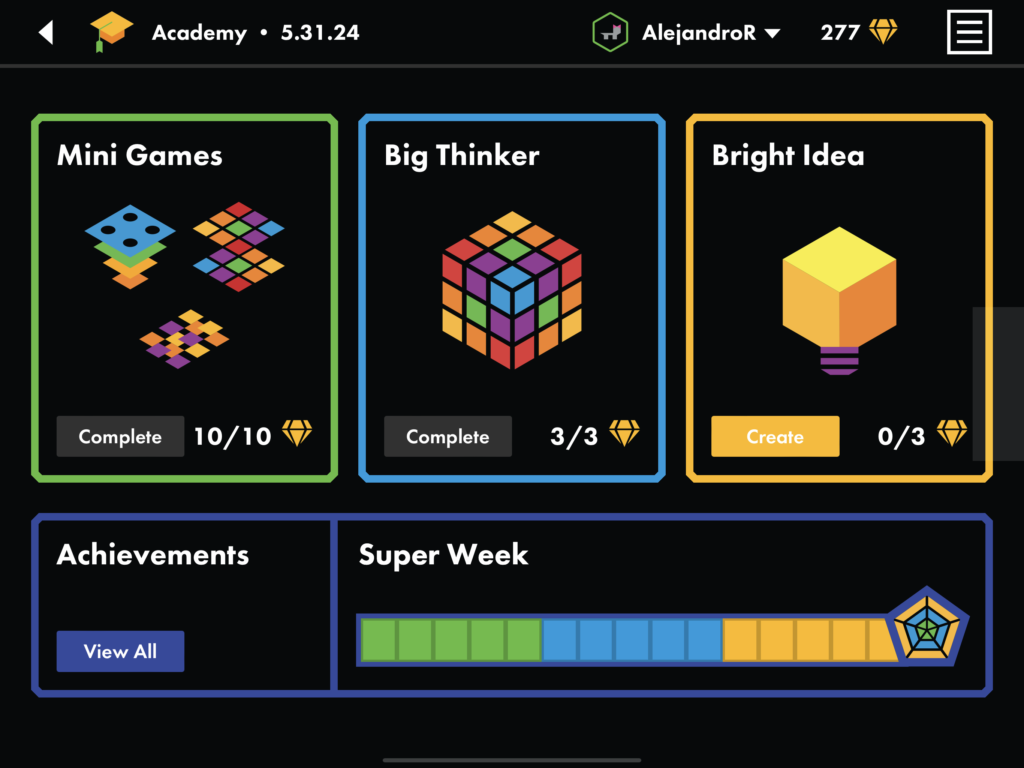
Tile Farm Academy is an adaptive learning platform that starts easy, then gradually progresses users through increasingly complex mathematical, problem solving, and creative challenges. It is the perfect way to get onboarded to Tile Farm, and in just 10–15 minutes a day, it is a simple and easy way to become a better mathematician and problem solver.
- Mini Games develop your mathematical and problem solving skills through easily digestible and entertaining games.
- Big Thinker puzzles develop problem solving perseverance and deeper thinking skills through more complex puzzles.
- Bright Ideas are daily creative challenges that allow users to be creatively expressive as they color and build.
Created by a team of scientists, mathematicians, and educators, Tile Farm Academy uses a novel science-based pedagogy based on decades of cognitive psychology and math education research aimed at optimizing how students learn best. In this post, we highlight six scientific principles behind Tile Farm Academy’s innovative design, and how you can use these principles to raise resilient and creative problem solvers.
1. Family Involvement

One of the most important things for any students’ success is their family being involved in their education, and there is science to back this up. One recent study showed that parents and children regularly engaging in bedtime math activities gave a substantial boost to students’ math achievement. Tile Farm Academy was designed for people of all ages, with the aim of providing families a way to bond over doing math together. By giving opportunities for parents, grandparents, and other caregivers to have engaging math and problem solving opportunities that parallel their children’s education, Tile Farm Academy can provide a natural bridge between education and family time.
2. Micro Learning
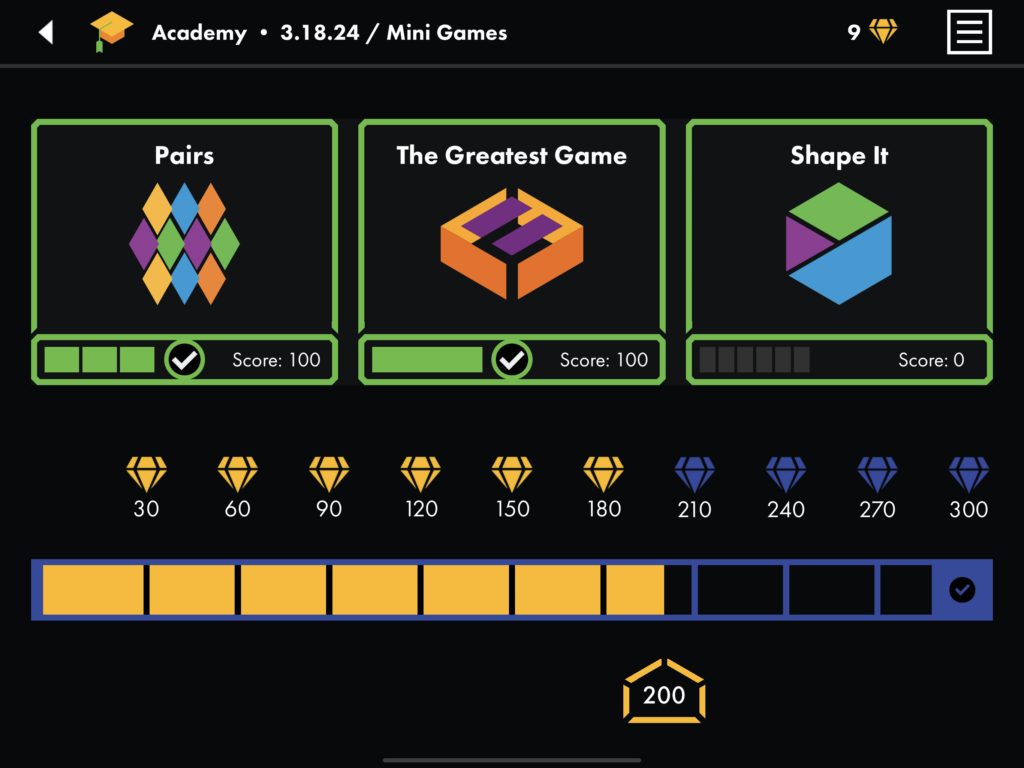
Though many of us may have experience “cramming” the night before a test, cognitive science shows that studying in small bite-sized chunks is a far more effective strategy for facilitating deeper comprehension and memory recall. This approach aligns with the cognitive load theory, suggesting that our working memory can only hold a limited amount of information at any given time, and that too much information at once can hinder understanding and retention. In just 10-15 minutes a day, students can reap the benefits of micro learning by completing Tile Farm Academy’s daily challenges.
3. Spatial Skill Development

Spatial skills — the ability to visualize, manipulate, and analyze objects in space — have been called the missing piece in math curricula. It’s easy to imagine how important spatial skills are for nearly any career, from architecture, to engineering, to art and design. An abundance of research has shown that training students’ spatial skills can have profound effects on future mathematical and scientific achievement, and can even give a boost to students’ verbal development. Tile Farm Academy places a heavy emphasis on the development of students’ spatial skills through geometric puzzles and daily building activities like the “Reflect It” puzzle shown above.
4. Spaced Repetition Learning
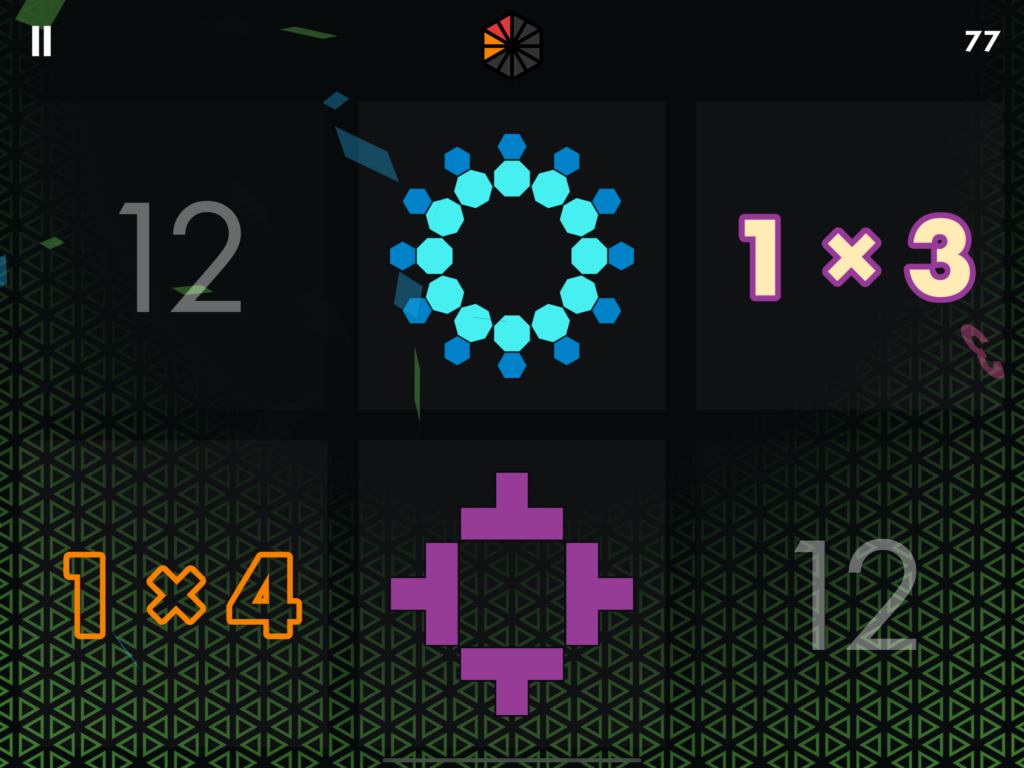
Have you ever worked hard at learning something, then come back to it weeks or months later, and realized that what you learned is suddenly a lot easier? Studies have shown that memory consolidation is optimized when you review learned material at gradually increasing intervals. This concept, called spaced repetition learning, is at the heart of Tile Farm Academy’s adaptive algorithms. In practice, this aims to give students a long-lasting understanding of mathematical concepts, setting them up for long term mathematical achievement.
5. Conceptual Understanding
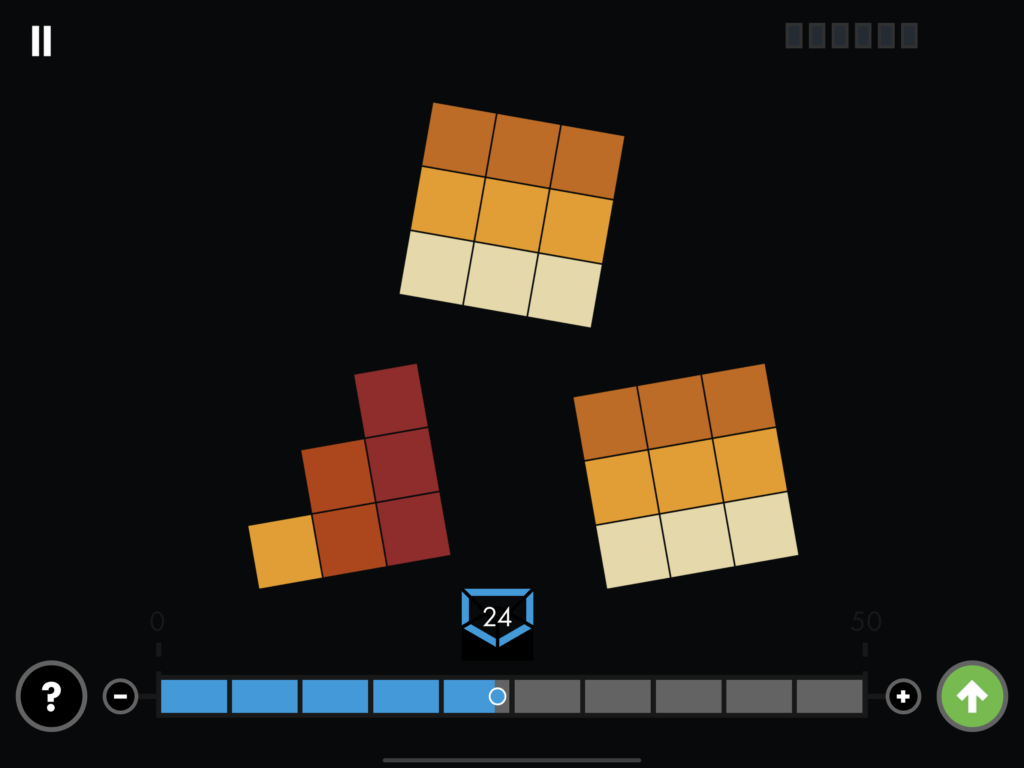
Anybody who uses math in their career knows that understanding math goes much deeper than just memorizing formulas. Conceptual understanding involves grasping the underlying principles and ideas behind mathematical concepts, rather than just learning procedures or algorithms by rote. Research has consistently shown that students who possess a strong conceptual foundation are better equipped to tackle complex problems and adapt to new mathematical challenges. Tile Farm Academy uses visual representations of numbers and a problem solving focused curriculum to deepen students’ conceptual understanding of math, while equipping them to become expert problem solvers.
6. Mastery Learning
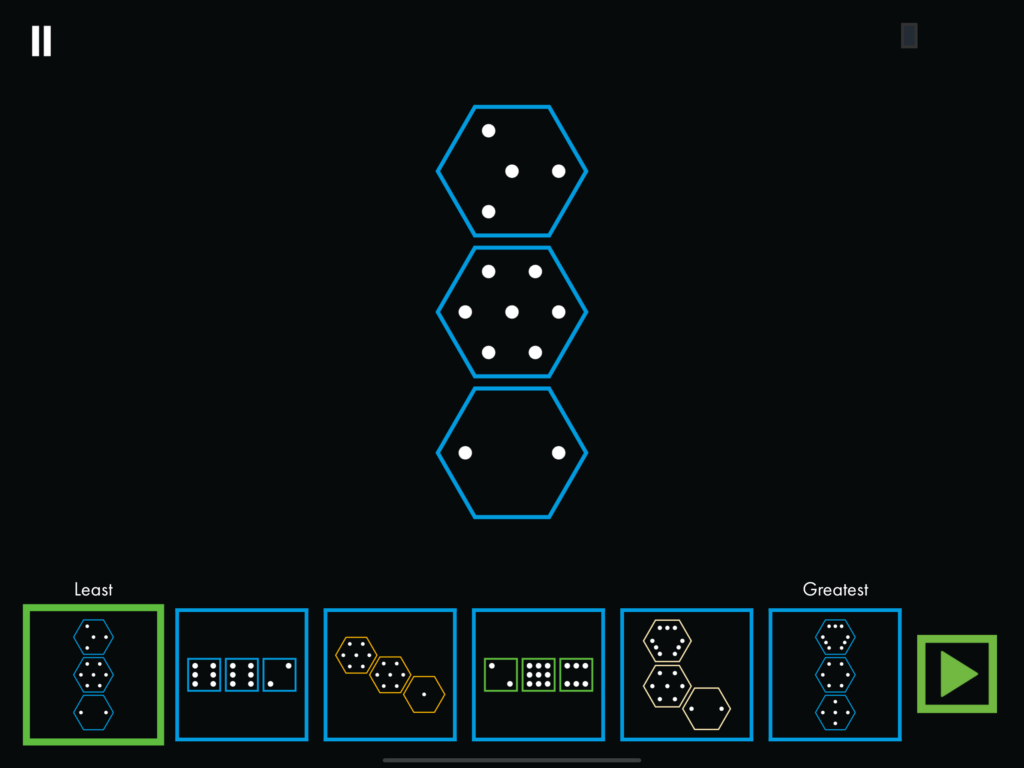
Imagine trying to learn addition, when you haven’t mastered counting, or learning calculus, when you haven’t mastered algebra. A major problem in math education is students moving on to more advanced math before they have mastered more foundational subjects. This often leads to a snowball effect where math becomes increasingly more difficult and confusing with time. Popularized by renowned psychologist Benjamin Bloom, mastery learning involves only advancing students once they have mastered foundational subjects. Bloom found that students taught with one-on-one mastery learning techniques scored substantially higher than their peers on achievement tests. Tile Farm Academy’s adaptive algorithms use mastery learning to maximize student learning.
Interested in learning more about the Science of Tile Farm? Check out the whole blog series here!
Sign up now and gain access to the full suite of Tile Farm products!
Use code LAUNCH to receive up to $50 in Tile Farm Maker credit when you subscribe.